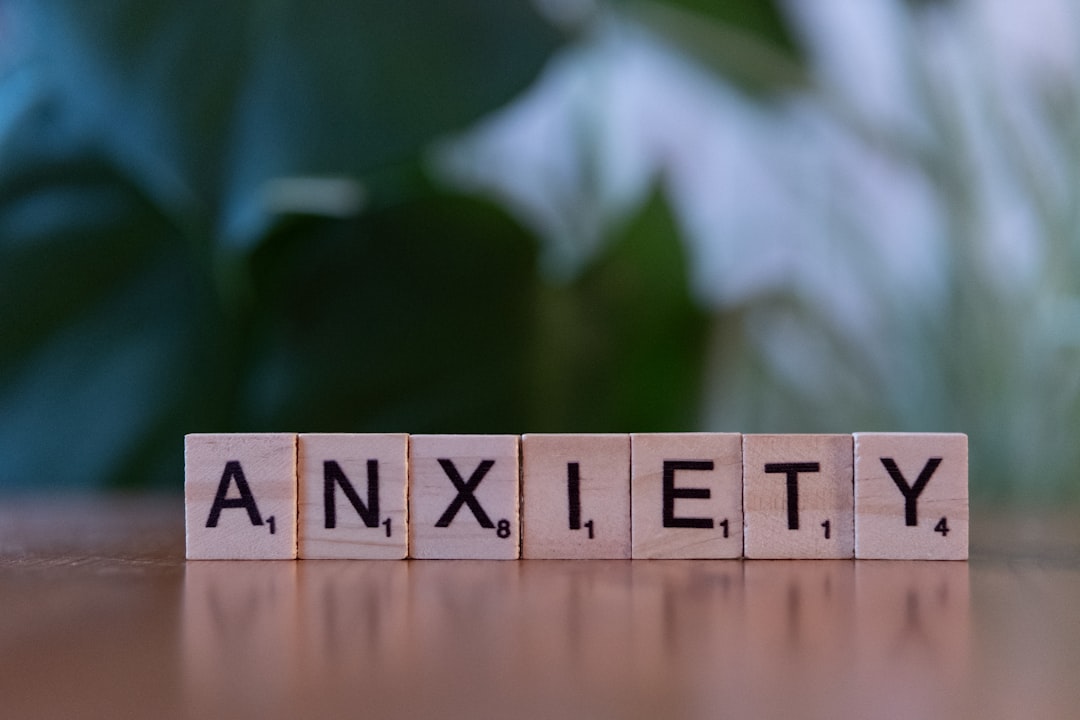Anxiety rumination is a common experience that many individuals face, often leading to a cycle of negative thinking that can feel inescapable. You may find yourself caught in a loop of overthinking, where your mind continuously revisits past events or worries about future scenarios. This cycle can be triggered by stressors in your life, whether they are related to work, relationships, or personal challenges.
As you dwell on these thoughts, you may notice that your anxiety intensifies, creating a feedback loop that makes it increasingly difficult to break free from the cycle. Understanding this cycle is crucial for regaining control over your thoughts and emotions. When you ruminate, you might feel a temporary sense of relief as you analyze your worries, but this often leads to deeper feelings of distress.
You may become hyper-focused on perceived failures or potential threats, which can cloud your judgment and prevent you from seeing the bigger picture. Recognizing that this cycle exists is the first step toward breaking free from its grip and finding healthier ways to cope with anxiety.
Key Takeaways
- Understanding the Anxiety Rumination Cycle: Rumination is the process of continuously thinking about the same thoughts, which can lead to increased anxiety and stress.
- Recognizing the Signs of Rumination: Signs of rumination include repetitive and intrusive thoughts, difficulty concentrating, and heightened emotional distress.
- The Impact of Rumination on Mental Health: Rumination can have a negative impact on mental health, leading to increased anxiety, depression, and decreased overall well-being.
- Challenging Negative Thought Patterns: It is important to challenge negative thought patterns by practicing cognitive restructuring and reframing negative thoughts.
- Practicing Mindfulness and Grounding Techniques: Mindfulness and grounding techniques can help individuals stay present and reduce the impact of rumination on mental health.
Recognizing the Signs of Rumination
To effectively combat anxiety rumination, it’s essential to recognize the signs that indicate you are falling into this pattern of thinking. You might notice that you frequently replay conversations in your mind, questioning what you said or how others perceived you. This self-doubt can manifest as an inability to let go of past mistakes or a constant worry about how your actions will be judged by others.
By identifying these thought patterns, you can begin to understand when you are ruminating and take steps to redirect your focus. Another sign of rumination is the physical manifestation of anxiety, such as tension headaches, muscle tightness, or an increased heart rate. You may find yourself feeling restless or unable to concentrate on tasks at hand because your mind is preoccupied with worries.
Recognizing these physical symptoms can serve as a cue for you to pause and assess your mental state. By becoming more aware of both your thoughts and physical sensations, you can take proactive measures to interrupt the cycle of rumination before it spirals out of control.
The Impact of Rumination on Mental Health

The impact of rumination on mental health can be profound and far-reaching. When you engage in persistent negative thinking, it can lead to increased levels of anxiety and depression. You may find that your mood fluctuates more dramatically, leaving you feeling overwhelmed and hopeless.
This emotional turmoil can affect various aspects of your life, including your relationships, work performance, and overall well-being. The longer you remain trapped in this cycle, the more challenging it becomes to break free and regain a sense of normalcy. Moreover, rumination can hinder your ability to make decisions and solve problems effectively.
When your mind is clouded by anxiety, it becomes difficult to think clearly or consider alternative perspectives. You may feel paralyzed by indecision or become overly critical of yourself for not having all the answers. This can create a vicious cycle where the fear of making mistakes leads to further rumination, exacerbating feelings of inadequacy and self-doubt.
Understanding the detrimental effects of rumination on your mental health is vital for motivating yourself to seek healthier coping strategies.
Challenging Negative Thought Patterns
| Technique | Effectiveness | Difficulty |
|---|---|---|
| Cognitive Restructuring | High | Medium |
| Mindfulness Meditation | Medium | Low |
| Positive Affirmations | Low | Low |
Challenging negative thought patterns is a crucial step in breaking free from the anxiety rumination cycle. You may find it helpful to practice cognitive restructuring, which involves identifying irrational thoughts and replacing them with more balanced perspectives. For instance, if you catch yourself thinking, “I always mess things up,” try reframing it to something like, “I have made mistakes before, but I also have successes.” This shift in thinking can help reduce the intensity of your anxiety and empower you to view situations more realistically.
Another effective strategy is to question the validity of your thoughts. When you notice yourself ruminating, ask yourself whether there is concrete evidence supporting your worries. Are you basing your fears on facts or assumptions?
By critically evaluating your thoughts, you can often uncover distortions that contribute to your anxiety. This process not only helps in challenging negative patterns but also fosters a greater sense of self-awareness and resilience in the face of stress.
Practicing Mindfulness and Grounding Techniques
Incorporating mindfulness and grounding techniques into your daily routine can significantly help in managing anxiety rumination. Mindfulness encourages you to stay present in the moment rather than getting lost in a whirlwind of thoughts about the past or future. You might start by dedicating a few minutes each day to mindfulness meditation, focusing on your breath and observing your thoughts without judgment.
This practice can create a sense of calm and clarity, allowing you to step back from ruminative thinking. Grounding techniques are also beneficial for anchoring yourself in the present moment. You could try engaging your senses by noticing what you see, hear, smell, taste, and feel around you.
For example, when you feel overwhelmed by anxious thoughts, take a moment to describe five things you can see or listen closely to the sounds in your environment. These techniques can help divert your attention away from ruminative thoughts and bring you back to the here and now.
Engaging in Physical Activity to Break the Cycle

Physical activity is another powerful tool for breaking the cycle of anxiety rumination. When you engage in exercise, your body releases endorphins—natural mood lifters that can help alleviate feelings of anxiety and stress. You might find that going for a brisk walk, practicing yoga, or participating in a favorite sport provides an outlet for pent-up energy and tension.
Not only does physical activity improve your mood, but it also offers a constructive way to redirect your focus away from negative thoughts. Additionally, regular exercise can enhance your overall mental health by promoting better sleep and increasing self-esteem. As you become more physically active, you may notice improvements in your mood and a greater sense of accomplishment.
This newfound confidence can empower you to tackle challenges head-on rather than retreating into rumination. By incorporating physical activity into your routine, you create a positive feedback loop that supports both your physical and mental well-being.
Seeking Support from Friends and Family
Reaching out for support from friends and family can be an invaluable resource when dealing with anxiety rumination. Sharing your thoughts and feelings with trusted individuals allows you to gain perspective and feel less isolated in your struggles. You might find that simply talking about what’s on your mind helps alleviate some of the burden you carry.
Your loved ones may offer insights or encouragement that challenge your negative thought patterns and remind you that you are not alone in facing these challenges. Moreover, seeking support fosters connection and strengthens relationships. When you open up about your experiences with anxiety, it creates an opportunity for deeper conversations and understanding among those close to you.
They may share their own experiences with similar feelings or provide reassurance that it’s okay to seek help when needed. Building a support network can be instrumental in breaking the cycle of rumination and promoting emotional resilience.
Utilizing Professional Help and Therapy
If anxiety rumination becomes overwhelming or persistent despite your efforts to manage it independently, seeking professional help may be necessary. A therapist or counselor can provide valuable tools and strategies tailored specifically to your needs. They can help you explore the underlying causes of your rumination and guide you through evidence-based techniques for managing anxiety effectively.
Therapy offers a safe space for self-exploration and growth.
Additionally, therapists often teach coping strategies that empower you to handle stressors more effectively.
By working with a professional, you gain access to resources that can significantly enhance your ability to break free from the cycle of rumination.
Creating a Healthy Routine and Structure
Establishing a healthy routine and structure in your daily life can play a pivotal role in managing anxiety rumination. When you create a consistent schedule for activities such as work, exercise, meals, and relaxation, it provides a sense of stability that can reduce feelings of chaos or uncertainty. You might find that having designated times for self-care activities helps prioritize your mental well-being amidst life’s demands.
Incorporating regular breaks into your routine is also essential for preventing burnout and minimizing ruminative thoughts. Allow yourself time to recharge throughout the day—whether through short walks, mindfulness practices, or simply stepping away from screens for a moment. By creating a balanced routine that includes time for both productivity and relaxation, you cultivate an environment conducive to mental clarity and emotional resilience.
Using Relaxation and Stress-Relief Techniques
Incorporating relaxation and stress-relief techniques into your daily life can significantly mitigate the effects of anxiety rumination. Techniques such as deep breathing exercises, progressive muscle relaxation, or guided imagery can help calm both your mind and body when feelings of anxiety arise. You might find that taking just a few minutes each day to practice these techniques allows you to cultivate a greater sense of peace amidst life’s challenges.
Additionally, exploring hobbies or activities that bring you joy can serve as effective stress-relief methods. Whether it’s painting, gardening, reading, or playing an instrument, engaging in creative pursuits allows for an escape from ruminative thoughts while fostering a sense of accomplishment and fulfillment. By prioritizing relaxation techniques alongside enjoyable activities, you create a holistic approach to managing anxiety that nurtures both body and mind.
Setting Realistic Goals and Expectations
Finally, setting realistic goals and expectations for yourself is crucial in combating anxiety rumination. You may often find yourself overwhelmed by perfectionism or unrealistic standards that contribute to feelings of inadequacy when things don’t go as planned. By establishing achievable goals—whether related to work projects or personal growth—you create a roadmap that allows for progress without excessive pressure.
It’s important to celebrate small victories along the way rather than fixating solely on end results. Acknowledging even minor accomplishments fosters motivation and reinforces positive thinking patterns. By setting realistic expectations for yourself and recognizing that setbacks are part of the journey, you empower yourself to navigate challenges with greater resilience while reducing the likelihood of falling back into rumination.
In conclusion, understanding anxiety rumination is essential for breaking free from its cycle and fostering better mental health. By recognizing signs of rumination, challenging negative thought patterns, practicing mindfulness techniques, engaging in physical activity, seeking support from loved ones or professionals, creating healthy routines, utilizing relaxation methods, and setting realistic goals—you equip yourself with powerful tools for managing anxiety effectively. Remember that progress takes time; be patient with yourself as you embark on this journey toward greater emotional well-being.
Breaking the anxiety rumination cycle can be a challenging yet essential task for mental well-being. One effective approach is to engage in mindfulness practices, which help individuals focus on the present moment and reduce the tendency to dwell on negative thoughts. For more insights into the science behind anxiety and techniques to manage it, you can explore a related article on Freaky Science. Check out this article for a deeper understanding of how to disrupt the cycle of anxiety and rumination.
WATCH THIS! The Default Mode Network: Why You Can’t Stop Thinking About That Cringe Moment
FAQs
What is the anxiety rumination cycle?
The anxiety rumination cycle is a pattern of repetitive, negative thinking that is common in individuals with anxiety disorders. It involves dwelling on past or future events, often with a focus on perceived threats or negative outcomes.
How does the anxiety rumination cycle affect individuals?
The anxiety rumination cycle can lead to increased feelings of stress, worry, and fear. It can also contribute to a sense of being overwhelmed and can interfere with daily functioning and decision-making.
What are some strategies for breaking the anxiety rumination cycle?
Strategies for breaking the anxiety rumination cycle may include mindfulness techniques, cognitive behavioral therapy, relaxation exercises, and seeking support from mental health professionals. Engaging in physical activity, maintaining a healthy lifestyle, and practicing self-care can also be beneficial.
Why is it important to break the anxiety rumination cycle?
Breaking the anxiety rumination cycle is important because it can help individuals regain a sense of control over their thoughts and emotions, reduce the impact of anxiety on their daily lives, and improve overall mental well-being. It can also help prevent the cycle from escalating into more severe anxiety disorders.
